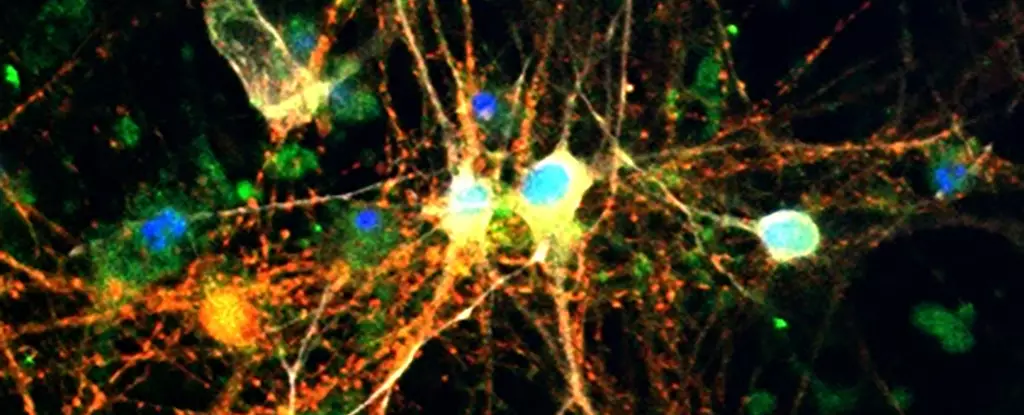For decades, scientists have largely dismissed glycogen in the brain as a mere energy reserve, a backup system for neurons in desperate times. This perspective, however, may be dangerously narrow and overly simplistic. New research from the Buck Institute throws cold water on this outdated notion, revealing that glycogen storage may play a far more sinister role in neurodegenerative diseases like Alzheimer’s. Instead of being an innocuous energy depot, glycogen could be actively involved in the pathological process, exacerbating neuron damage and hastening cognitive decline.
This revelation challenges the conventional wisdom that links tau protein buildup solely to protein misfolding and environmental factors. It suggests an intricate relationship between metabolic dysfunction and neurodegeneration, highlighting that the core problem might not just be the tau proteins themselves but how the brain handles its fuel sources. By focusing on glycogen abnormalities, researchers are uncovering a potential ticking time bomb within neurons—one that could accelerate deterioration rather than just reflect the disease’s consequences.
Glycogen’s Role in the Neurodegenerative Dilemma
The discovery of excess glycogen in both animal models and human Alzheimer’s patients raises profound questions about cause and effect. Is glycogen accumulation a byproduct of neurodegeneration, or does it serve as a catalyst? So far, evidence hints at the latter: tau proteins appear to interfere with normal glycogen breakdown through pathways involving glycogen phosphorylase (GlyP). Instead of being metabolized efficiently for energy, glycogen piles up, creating a toxic environment that compounds neuronal stress.
This metabolic interference may generate a degenerative feedback loop—where tau-induced disruptions lead to glycogen hyperaccumulation, which in turn fuels more tau aggregation. This vicious cycle damages the neurons’ defenses, making them more vulnerable to oxidative stress and ultimately leading to cell death. The fact that manipulating GlyP activity can restore glycogen metabolism and reduce neuron damage indicates that these metabolic pathways are not just passive players but active perpetrators in neurodegeneration.
From a clinical perspective, this shifts the narrative: instead of solely targeting tau proteins or amyloid plaques, therapies could focus on restoring metabolic balance within neurons. Enhancing glycogen breakdown might reduce toxic buildup, slow disease progression, and preserve cognitive function—offering a new angle for intervention that directly tackles the underlying metabolism rather than just its symptoms.
Implications for Future Treatments and Preventive Strategies
It’s tempting to view this discovery through a lens of caution—it suggests that basic metabolic functions in the brain are more complex and fragile than previously believed. But it also opens the door to revolutionary treatments rooted in metabolic regulation. The researchers’ experiments with dietary restriction and drugs mimicking its effects are promising, demonstrating that metabolic shifts can favorably influence disease progression.
By advocating for targeted metabolic therapies—such as activating GlyP or modulating nutrient intake—this research pushes us toward a more holistic approach to neurodegenerative diseases. It’s not enough to chase elusive protein aggregates; we must also understand and fix the brain’s internal chemistry, which appears to be a fundamental factor determining neuronal resilience.
The potential connection between existing diabetes drugs, like GLP-1 receptor agonists, and neuroprotection is particularly compelling. These medications might have a dual function—controlling blood sugar and concurrently reducing glycogen-induced toxicity in neurons. Such intersections between metabolic health and cognitive health underscore the importance of viewing neurodegeneration as a systemic issue, not an isolated brain problem.
This emerging field is a stark reminder that our understanding of neurodegenerative diseases is still incomplete. The road ahead will require brave shifts in research priorities—toward integrating metabolism, nutrition, and pharmacology—to forge effective, multifaceted therapies. While skepticism remains warranted, this new direction offers hope that transformative breakthroughs are within reach by challenging our assumptions and embracing the biochemical complexity of neuronal function.


Leave a Reply